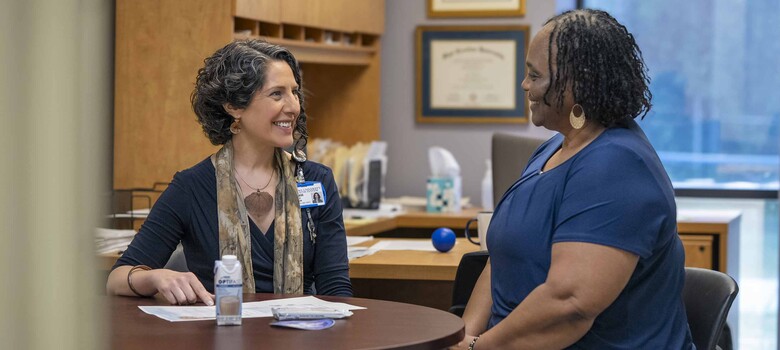 From the DukeHealth.org archives. Content may be out of date.
From the DukeHealth.org archives. Content may be out of date.
Duke Leads National Effort to Improve Lung Transplant Survival

A $12.95 million NIH grant awarded to Duke researcher Scott Palmer, MD, will fund a network of centers dedicated to improving patient survival following lung transplant, and discovering therapies to decrease the risk of lung rejection.
The grant is a much-needed shot in the arm for lung transplant research, explains Dr. Palmer. “There has been a lack of support for multi-center research to define best practices, and to better understand why some patients have so much trouble with rejection and only survive a short time after transplantation. This is a huge breakthrough. Hopefully it will make a difference for everyone.”
Lung transplant is an important treatment for advanced lung disease including Chronic Obstructive Pulmonary Disorder (COPD), cystic fibrosis, interstitial lung disease, and pulmonary hypertension. While the number of lung transplants is on the rise, lung transplant patients do not do well as recipients of other organs. Patient survival rates following lung transplant are low, by comparison, and rejection rates are high.
Duke is one of the largest lung transplant centers in the U.S. With Dr. Palmer at the lead, it will be the coordinating center for the development of multi-center clinical trials. The grant will fund the first Lung Transplant Clinical Trials Network, which will include Duke, the Cleveland Clinic, Johns Hopkins University, the University of California – Los Angeles and the University of Toronto.
The network’s research will address the post transplant complications that contribute to poor outcomes. It will look at current and new therapies to decrease the risk of organ rejection, and ways to reduce the risk of infection, which often contributes to rejection failure. The network also intends to gain a better understanding of the mechanisms involved in the loss of lung function following transplant, often a major cause of post transplant death.
“Together, we’ll be able to establish the best practices, and gain more insights into the kinds of problems that result in infection and chronic lung rejection,” says Dr. Palmer. “We’ll use the information to guide further trials and future therapies, and ultimately improve our long-term patient outcomes.”
Duke patients will be in a unique position to gain from this vast learning experience. “At Duke,” Dr. Palmer says, “We are constantly translating the lessons we’re learning from our research experience into practice and better patient care. In addition to being one of the largest lung transplant programs in the U.S., we’re also pushing the research frontiers tailored around how we make this a better experience and outcome for our lung transplant patients.”



